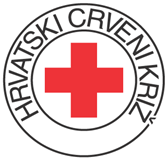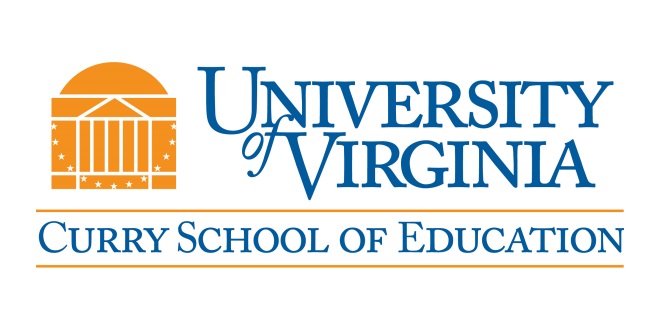PRIORITIZING ACADEMIC PROGRAMS INDIANA STATE UNIVERSITY PROVOST REPORT TO
PRIORITIZING ACADEMIC PROGRAMS INDIANA STATE UNIVERSITY PROVOST REPORT TO
PRIORITIZING ACADEMIC PROGRAMS
PRIORITIZING ACADEMIC PROGRAMS
INDIANA STATE UNIVERSITY
PROVOST REPORT TO THE INDIANA STATE UNIVERSITY BOARD OF TRUSTEES
APRIL 19, 2007
The need for Indiana State University to be more aggressive in clarifying purposes, setting priorities, and allocating resources to high-priority programs has been accepted by the Indiana State University community. I am most impressed by the work of the faculty in responding to this challenge. We all have acknowledged that prioritizing what we do is one of the more difficult tasks that that we have ever pursued. The Program Prioritization Task Force, CAAC, Faculty Senate, each dean, and their respective faculty leadership teams are to be commended for the serious manner they approached this task. All have accepted the challenge and our students and the state will be better served over time.
When we began this process, the Task Force identified 214 academic programs at ISU. They further identified that 90% of our students are enrolled in 50% of these programs. Approximately 8,800 students are enrolled in 107 programs and another 1,800 students are enrolled in the remaining 107 programs. It is obvious that we cannot continue to support programs with this type of overall distribution. The recommendations contained in this report will reduce the number of programs from 214 to approximately 150. The final number will not be determined until departments and colleges complete a number of curriculum revision projects currently underway.
This work is the first step in our on-going commitment to continually and systematically review our course offerings and array of programs to ensure that we are serving the needs of our students as well as the needs of Indiana and the world. It is our responsibility to make sure that we continually assess what we do in terms of quality, centrality to mission, alignment with strategic goals, demand, and enrollment. A plan to accomplish this will be presented to the campus Fall 2007.
We have reason to celebrate these recommendations. By reducing the number of programs we give greater focus to our work, we strengthen academic quality, we create conditions to support academic excellence, and finally, we create conditions that will support the growth of new academic programs. I have acknowledged that selected faculty units are overextended and this action provides the foundation to begin to address that problem.
One of the goals of this initiative was to identify resources to reallocate to support the needs of existing programs and to invest in selected new programs. In this process, we have identified some initial savings, and fully expect that additional savings will be identified over the next three to five years through the reduction of course redundancy, revision our general education program, through selected course transformation, and through faculty retirements and resignations. It is impossible to provide an accurate estimate of the total savings from this work at this point in time.
President Benjamin has supported program excellence through initiatives such as “Distinctive Programs” and “Promising Scholars” and has supported this work from its conception - he is very pleased with our progress. He also recognizes that much of our savings for reinvestment will not be realized for several years and he believes that there is a pressing need to move aggressively to strengthen key programs and to invest in new programs. As such, he has created the President’s Fund for Academic Excellence and has committed approximately $750,000 to support high-quality, academic programs over the next three years. These funds are to be used as one time investments for program enhancement, growth, and expansion and to jump-start our efforts to strengthen core programs. This fund will supplement the base budget savings that we are able to realize through implementation of the program prioritization recommendations. These funds will support programs that are aligned with student demand, regional, state, and community needs, and the University’s strategic goals. Additional funds will be earmarked for course redesign or transformation, which is the process of redesigning whole courses (rather than individual classes or sections) to achieve better and more consistent learning outcomes by rethinking the way we deliver instruction, focusing on student learning, and taking advantage of the support of information technology.
In the following sections of this report, I present university-wide and college-specific recommendations. Many of these recommendations, including revisions and eliminations, have already been initiated by the colleges.
Programs that are recommended for elimination will be charged to present a plan for phasing out the program that will ensure that any student enrolled in the program has the opportunity to complete the program and/or transfer to another program without harm. The phase-out plans are due no later than August 1, 2007. Admission to these programs is to be suspended at this point in-time.
Programs recommended for revision, merging or other action will be charged to present a recommendation to the campus for that action by December 1, 2007 unless otherwise stated. This time frame will provide the opportunity for faculty committees to take their action during the remainder of the academic year. These plans should address options for students to complete current programs and/or easily transfer to revised programs.
Program Prioritization Report for the Board of Trustees April 2007
|
College/Unit
|
Program |
Actions |
|
Teacher Education |
Graduate programs in CAS, COB, COE, CHHP, and COT |
Developing program and delivery system that will support the needs of teachers at the graduate level and contain approximately 50% courses in teacher education and 50% coursework in the content area. Will submit proposals for program elimination and modification by December 1, 2007.
|
|
General Education |
General Education |
Joint Faculty Senate-Provost GE Taskforce has been established, which will recommend a structure for the General Education program that: increases quality, student success, and academic challenge places student learning at the center emphasizes inquiry and active learning builds upon the Indiana Core Transfer Library and other state initiatives or requirements supports the reallocation of resources for strategic academic priorities promotes coherence and common intellectual experiences (more of a common core)
|
|
Arts and Sciences |
BA Art History
MA/MS Communications: Communication Studies, General Studies, and Radio/TV/Film
|
Eliminate separate degree and develop track in Art major (BS)
Merge these three degree programs into one master’s degree program with selected concentrations |
|
|
BA/BS Communication Studies, Journalism, Radio/TV/Film |
Program change approved 3/19/07. Now 1 major in Communication Studies with 4 concentrations: Electronic Media, Human Communication, Journalism, and Public Relations. |
|
|
BA/BS Clinical Lab Science |
Will be eliminated
|
|
|
Ph.D. Life Sciences—Ecology, Microbiology, Systematics, and Physiology
PhD Life Sciences – Sports Medicine
|
Will become 1 Ph.D. in Life Sciences, 1 in other successor department. Must develop a 5 year plan to increase sponsored research including funding of a minimum of 50% of graduate assistants by external sources
Eliminate
|
|
|
Ph.D. Geography—Physical Geography and Economic Geography
|
Merging into 1 program. Must develop a 5 year plan to increase sponsored research including funding of a minimum of 50% of graduate assistants by external sources
|
|
|
BA/BS Anthropology, Geology, and Ecology and Organismal Biology
|
Under reorganization, will become 1 major with 3 concentrations |
|
|
MA/MS Geology
|
Under reorganization |
|
|
MA English—Theater
|
Proposal to eliminate received April 19 |
|
|
MA English—Teaching |
Eliminate - In process at Teacher Education Committee
|
|
|
Minor GIS
|
Will be suspended |
|
|
MA/MS History/Labor & Reform
|
Will be merged into one degree program - History MA/MS
|
|
|
Undergraduate programs---Languages, Literatures, & Linguistics
|
Consolidating |
|
|
Graduate programs-----Languages, Literatures, & Linguistics
|
Consolidating. Proposal to suspend Master’s in Spanish received April 19. |
|
|
BA/BS Information Technology
|
Under review – Proposal to respond to several concerns due December 1, 2007
|
|
|
BS, Music--Merchandising and Business
|
Merging into one program with two concentrations. |
|
|
Master’s programs—Music
|
Curriculum revisions under development to merge to one degree with selected concentrations.
|
|
|
BA/BS Music—Composition, Education, History & Literature, Theory, Performance
|
Merge to one program with two tracks |
|
|
Minor in Music Theater
|
Proposal to eliminate received April 19 |
|
|
BA/BS Philosophy |
Plan under development with other departments to create Philosophical Studies program and reorganize academic unit.
|
|
|
BS, Physics |
Creating Department of Chemistry and Physics, retaining , but restructuring Physics major, pursing agreements with other universities on pre-engineering 3 +2 programs
|
|
|
BA/BS Sociology |
Major to be eliminated, minor and selected courses will continue
|
|
|
Graduate certificate, Women’s Studies
|
Proposal to eliminate received April 19 |
|
|
Women’s Studies minor, African & African American Studies, International Studies, etc.
|
Interdisciplinary unit under development to coordinate management of and enhance curriculum of programs |
|
Business |
MBA
|
Review program and make recommendations related to curriculum and delivery by January 2008
|
|
|
BA/BS Information Design and End-User Computing
|
Discussion of combining with OMA and MIS into a new department. |
|
Education |
Ph.D. CIMT with specializations in History, Language, Math, Secondary Ed, Special Ed, Teaching & Learning, Elementary Ed, English, Industrial Technology, Early Childhood, Educational Technology
|
Will submit program modification by December 1 to have one program with concentrations |
|
|
Ph.D. Counselor Education – 3 degree programs
|
Will consolidate to 2 tracks |
|
|
BA/BS Early Childhood |
Eliminate; add early childhood concentration to Elementary Ed major
|
|
|
MED Early Childhood, Literacy (DART), and Elementary Ed |
Merge into master’s program with core and concentrations
|
|
|
MS - Library Media |
Modify Educational Technology masters program to have 2 concentrations and non-degree track in library media
|
|
|
Non-degree, Director of Exceptional Needs
|
Revise curriculum |
|
Health and Human Performance
|
BS Community Health Promotion and School Health |
Revision approved 3/19/07. 1 degree in Health Science with 2 concentrations. |
|
|
Ph.D. Athletic Training with Life Sciences |
Proposal to eliminate received April 19 See Ph.D. in Life Sciences (CAS)
|
|
|
BS Recreation Therapy |
3 years to develop adequate enrollment base, revision to Recreation & Sport Management degree program has been submitted |
|
|
BS Environmental Health
|
Will eliminate |
|
|
MS Adult Fitness and Exercise Science
|
Will combine into one Exercise Science MS |
|
|
MS Physical Education--Master Teacher
|
Will eliminate |
|
Nursing |
MS Adult Health Track
|
Elimination approved 4/2/07 |
|
|
MS Community Health Track
|
Elimination approved 4/2/07 |
|
|
General Recommendation—establish enrollment limits
|
Limits proposed and under consideration. |
|
Technology |
AS Career and Technical Education |
Elimination approved by Faculty Senate 4/19/07
|
|
|
AS Construction Technology
|
To be eliminated |
|
|
BS Packaging Technology |
Reorganization of college will enable realignment of program and curriculum revisions will follow
|
|
|
BS Industrial Technology and Industrial Supervision |
Programs will move to different departments under proposed reorganization of college and reconfigure with other programs will be a priority
|
|
|
BS, Manufacturing Technology and Computer Integrated Manufacturing Technology |
Programs will move to different departments under proposed reorganization of college and reconfigure with other programs will be a priority
|
|
|
BS Career & Technical Education (Teaching and Non-Teaching tracks)
|
Merge to one degree program
|
|
|
Ph.D. Technology Management |
College will assess and refine program, with plan for future developed by January 31, 2008
|
Tags: academic programs, reorganize academic, academic, report, state, prioritizing, programs, indiana, university, provost
- 3 VÝVOJ POČTU NOVĚ HLÁŠENÝCH PŘÍPADŮ PRACOVNÍ NESCHOPNOSTI A
- PAÍS INSTITUCIONALIDADA AUTORIDAD POLÍTICA DE SEGURIDAD PÚBLICA TIPO DE
- ATTACHMENT B GUIDELINES FOR REDUCTION OF MAINTENANCE ACTIVITIES IN
- MOTIVASI 215 HAKIKAT MOTIVASI BELAJAR 1 PENGERTIAN MOTIVASI BELAJAR
- S AMWONTECH 东莞市科文试验设备有限公司 HTTPWWWKOWINTESTCOM 温湿度程式控制器 PROGRAMMABLE TEMPERATURE & HUMIDITY
- HANDREIKING OPLEIDEN TRAINEN OEFENEN IN AANSLUITING OP HET HANDBOEK
- V ENDOR INFORMATION FORM M UST BE
- 1 VAMOS A PRESENTAR LA PROPUESTA DE MODIFICACIÓN DE
- TUITION REIMBURSEMENT FOR STAFF EXEMPT FROM THE PERSONNEL ACT
- ATTACHMENT A DEFAULT PREVENTION AND MANAGEMENT A PLAN FOR
- RELACIÓN DE DOCUMENTOS QUE HA DE CONTENER EL EXPEDIENTE
- Model Building Code for Wind Loads Final Version may
- CALL INTERNSHIP INTERNATIONAL OFFICE APPLIED SOCIAL STUDIES VIVES UNIVERSITY
- ANKIETA OCENY RYZYKA MAJĄTKOWEGO INFORMACJE OGÓLNE NAZWA ZAKŁADU SAMODZIELNY
- A FSANZ DISCUSSION PAPER IMPROVING FOOD SAFETY FOR
- TABLE S1 ACCESSION NUMBER OF SEQUENCES DOWNLOADED FROM THE
- Repeat Sections Spring 09 Second and Third Sessions Time
- 2020 BANQUET MENUS BELOW YOU WILL FIND OUR BANQUET
- INŠTRUKCIE PRE VYPRACOVANIE ZÁVEREČNEJ SPRÁVY ZÁVEREČNÚ SPRÁVU JE POTREBNÉ
- CONTACT DETAILS FOR NURSERIES TAKING PART IN THE EXPANSION
- 16 DEPARTMENT OF PUBLIC SAFETY 219 OFFICE OF STATE
- Frog and Toad are Friends spring by Arnold Lobel
- RIGHTS ENTITY FOR THE PURPOSE OF THE PREMIS
- 2016KO PROIEKTUEEN POLTSA LAN ILDOAK FORMAKUNTZA SENTSIBILIZAZIOA SUSTAPENA ETA
- UNIDAD 2 LEGISLACIÓN 1 EL CONTRATO DE COMPRA VENTA
- EL SOCIOGRAMA 1 INTRODUCCIÓN LA MAYOR PARTE DE NUESTRA
- SAMPLE AWARENESS QUIZ NAME DATE THIS QUIZ
- ANNUAL COMPLIANCE REPORTING FORM LICENSED ACTIVITY OPERATE A HIGH
- HOMILÍA SR ARZOBISPO CASTRENSE EN EL FUNERAL POR LOS
- 2006 OHIO COMPLIANCE SUPPLEMENT APPENDIX D APPENDIX D COMPLIANCE
 EL PRETÉRITO PERFECTO – DAS PERFEKT I FORMA HILFSVERB
EL PRETÉRITO PERFECTO – DAS PERFEKT I FORMA HILFSVERB9 MINISTERIO DE SALUD SUBSECRETARÍA DE SALUD PÚBLICA MODIFICA
ANEXO NO 3 RESOLUCIÓN NO5362017 CUADRO BÁSICO DE PRODUCTOS
MINISTRY TEAMS PURPOSE IN THE COWBOY CHURCH WE USE
 REPETITORIJ PRVE POMOĆI ZA PRIPREMU EKIPA PODMLATKA ZA NATJECANJE
REPETITORIJ PRVE POMOĆI ZA PRIPREMU EKIPA PODMLATKA ZA NATJECANJE PROGRAMACIÓN DIDÁCTICA – MÚSICA ESO 1 COMUNITAT VALENCIANA MÚSICA
PROGRAMACIÓN DIDÁCTICA – MÚSICA ESO 1 COMUNITAT VALENCIANA MÚSICA 28092020 SAMTYKKEERKLÆRING VED INNHENTING AV PERSONOPPLYSNINGER FOR
28092020 SAMTYKKEERKLÆRING VED INNHENTING AV PERSONOPPLYSNINGER FORCERTIFICACIÓN LITERAL DE CONTADOR PÚBLICO INDEPENDIENTE SOBRE ESTADOS CONTABLES
LUIS ANTONIO RODRÍGUEZ MARTÍNEZ EL RETO DE EDUCAR A
LOGO TEMPORARY CONSTRUCTION EASEMENT THE UNDERSIGNED GRANTOR FOR THE
 EXAMENES PASADOS CURVA DE PHILLIPS SEGUNDO PARCIAL PRIMAVERA 2009
EXAMENES PASADOS CURVA DE PHILLIPS SEGUNDO PARCIAL PRIMAVERA 2009 EDIS 7720 WORD STUDY LANGUAGE STRUCTURES AND PHONICS FALL
EDIS 7720 WORD STUDY LANGUAGE STRUCTURES AND PHONICS FALLHARDWOOD LUMBER GRADING AND TERMINOLOGY HARDWOOD LUMBER GRADING IS
PODACI VEZANI UZ NATJEČAJ ZA PRIJAM U SLUŽBU NA
SZÜKSÉGES IRATOK A SZOCIÁLIS SEGÉLYHEZ A 16 – 65
KROATIENTAG 2011 FREUDE ÜBER BALDIGEN EUBEITRITT KROATIENS DER EUBEITRITT
OBRAZAC PRIJAVE DIONIČARA ZA SUDJELOVANJE NA GLAVNOJ SKUPŠTINI RIVIERA
 56 PROJEKTS LATVIJAS REPUBLIKAS MINISTRU KABINETS 2014 GADA “”
56 PROJEKTS LATVIJAS REPUBLIKAS MINISTRU KABINETS 2014 GADA “”Ðïࡱáþÿ ¥ág ¿¸bjbjx8eùx8eù Ínì³ì³® Ÿÿÿÿÿÿ]0000000ttttp¤à4tx85¶~~~~~x88x88x88jllllllôîp0x88ffx88x88p(00~~èv(((x886 0~0~jtt0000x88j((8x8eæh00 ~ôx80jzdvx90àtt¾j no
 MORGAN STATE UNIVERSITY JOB SPECIFICATION HAZARDOUS MATERIALS ASSISTANT
MORGAN STATE UNIVERSITY JOB SPECIFICATION HAZARDOUS MATERIALS ASSISTANT